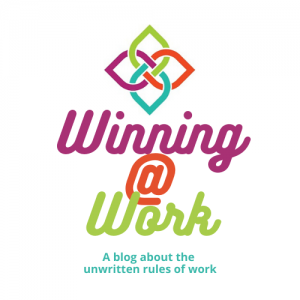
“Our doubts are traitors, and make us lose the good we oft might win, by fearing to attempt.” ― William Shakespeare, Measure for Measure
You’re smart, you’re accomplished, you’re confident in your problem-solving abilities. Let’s face it — you’re a success. And that makes sense. You’ve risen to the challenge your entire life. You work hard and you’re resilient. But deep down you have a dirty little secret... you doubt yourself.
When things don’t go as planned, you may even beat yourself up. After all, you were the kid in school who didn’t get B’s. Only A’s for you. You worked hard to make sure that was the outcome — doing what was expected, studying hard, going the extra mile — and it paid off.
Deep down you have a dirty little secret... you doubt yourself.
As an Executive and Leadership Coach I am privileged to work with accomplished and very bright people every day. It’s exciting to brainstorm strategies to meet their business and personal objectives and to see them stretch to overcome obstacles.
I will admit that I’m often surprised that the superstars I work with have doubts — and sometimes pretty deep-seated doubts. In spite of all the external validation of their excellence, many fear that if they take their eye off the ball for even a second or stop worrying even for a moment that all their hard-earned success will evaporate like morning dew on a hot summer day.
I’ve seen it often enough that I know this is common among high-achievers. It got me wondering that if confidence is the expectation of a positive outcome, why do those with so much success have doubts about this pattern continuing? After many conversations, I’ve come to the conclusion that self-doubt comes from fear of judgment.
Many fear that if they take their eye the ball for even a second... all their hard-earned success will evaporate
Rather than internalizing and taking responsibility for the success that they’ve created, many high-performers will rush to the next challenge without savoring or celebrating their accomplishments — without fully recognizing their true contribution to the positive outcome. And not only that, there’s an unhealthy focus on what went wrong! If 95% of their project went well, they will often obsess about the 5% that didn’t.
Perhaps you’re seeing the issue with this... the workplace and school are very different environments. In school there’s one teacher for each class and all the assignments are the same. The teacher has a clear standard of what he or she expects and will grade based on a key of correct answers. Obviously, in the workplace things are not so black and white. In the workforce, unlike in school, no two assignments are exactly alike – there’s always some difference. Leaders aren’t usually charged with “making widgets” -- they are expected to create impact in their areas of responsibility. How they do that is often undefined and can be quite ambiguous.
Any time there’s uncertainty, there can be insecurity. This situation can cause leaders to look for gaps and risks, and worry about what they aren’t seeing that could come back to bite them. It can also cause them to look for external validation from supervisors, peers, customers or even direct reports. When this is not forthcoming, the leader can wonder why no one is telling them that they’re going in the right direction (when in fact they may be the only one who truly knows since it’s a singular path).
The trick to overcoming this self-doubt and owning your confidence is to recognize a few key truths:
- You are perfect the way you are. Your innate worth is not tied in any way to your performance rating (or your GPA). You are a worthy human being regardless of someone else’s judgment of you. You truly are smart and capable. Even if you make a mistake, you’ll figure out how to fix it. Free yourself of the fear of external judgment. You’ll be amazed at how light and nimble you are without the constant self-consciousness. You don’t need to worry – that just eats up the energy you’ll need to respond if something (occasionally) goes wrong.
- The only validation that truly matters is the one you have of yourself. I’m not suggesting that you delude yourself and not face up to things that could have gone better. You need to take responsibility. However, this does not mean that you need to berate yourself or feel guilty because you weren’t perfect. Preserve any energy that you may have used to tell yourself you’re “not good enough” and use it to fix the problem. Forgive yourself for not being omnipotent.
- Recognize that the workplace is not like school. The challenges you face at work are often new and undefined. It’s up to you to define parameters, identify risks and decide how you’ll plan and execute. Your boss is counting on you to know your stuff. He or she often doesn’t know the day-to-day challenges you’re facing and is counting on you to make decisions based on the best knowledge you have at the moment. Unlike in school, there’s no wise teacher there to grade you on each stage of your project. (I know you know this but there may a part deep inside that is still trying to be “the teacher’s pet” and do everything perfectly. This is impossible and a hindrance in the workplace as there is no “perfect” path. You just gotta get stuff done!)
- You define your own success. Granted, the rewards you reap may not be the ones you desire if your goal doesn't align with those in charge, but sometimes your own self-respect and validation is worth much more.
“There is no way to genuinely, powerfully, truly love yourself while crafting a mask of perfection.” ― Vironika Tugaleva

